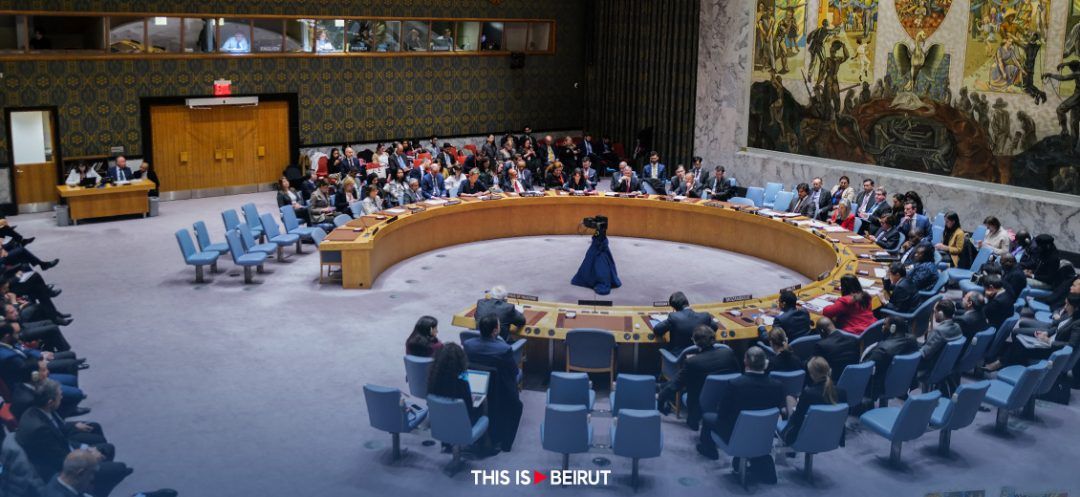- Home
- War in the Middle East
- UNSC Demands Israel to Step Up Gaza Aid Efforts

©(Photo by Charly TRIBALLEAU / AFP)
The UN Security Council on Thursday acknowledged Israel's pledge to open more entry points to allow humanitarian aid into Gaza but said "more should be done" to help civilians in the besieged Palestinian territory.
In a statement, council members "took note of the announcement by Israel to open the Erez (border) crossing and allow the use of the Ashdod port for aid deliveries into Gaza, but stressed that more should be done to bring the required relief given the scale of needs in Gaza."
Israel promised last week that it would open the Erez crossing in the north after a tense telephone call between Joe Biden and Israeli Prime Minister Benjamin Netanyahu in which the US president demanded "immediate action" on aid.
But it is understood that aid trucks will not use the crossing, with Israeli media reporting that the government fears protests from far-right groups who are against any aid reaching Gaza.
Israel's Defense Minister Yoav Gallant said on Wednesday that it is planning to send food through a new crossing and a port just north of the besieged territory.
In its statement, the Security Council reiterated its "deep concern over the human toll of the conflict, the catastrophic humanitarian situation, and the threat of imminent famine in Gaza."
Council members also "called for the immediate lifting of all barriers to the delivery of humanitarian aid at scale to the civilian population and to the unhindered distribution of such assistance."
Challenges in the Delivery of Humanitarian Aid
International aid typically arrives in Egypt through the ports of Port Said or al-Arish. The latter is closest to the Gaza Strip but rapidly becomes overwhelmed due to its small size, according to some NGOs. Trucks then transport the aid to Gaza.
Most trucks enter through the Rafah crossing point on the border between Egypt and Gaza and wait for days in a transit zone with a capacity of around 50 places, which NGOs consider insufficient.
The shipments must then undergo meticulous checks, involving a time-consuming back-and-forth process with inspection points located in Israel, namely Kerem Shalom and Nitzana.
Authorized products are unloaded in the area between Egypt and the Gaza Strip, then loaded onto other vehicles driven by Palestinians working for NGOs for distribution within the territory.
The stringent checks are the main reason for the slow delivery, according to NGOs. Israeli authorities cite these organizations' inability to handle the quantity of aid.
Transporting aid from southern Gaza to the north, where the humanitarian crisis is most severe, is highly complex due to destruction and fighting.
Convoys, including those from the World Food Programme (WFP), have been blocked by Israeli authorities. Some have also been looted on the road by crowds of Palestinians, described by NGOs as "starving."
Several countries (United States, Jordan, United Arab Emirates, France, Belgium, etc.) also conduct aerial drops, particularly in the north.
The opening of a maritime corridor between Cyprus and Gaza allowed a boat carrying 200 tons of food to arrive in March. According to Open Arms, the Spanish NGO that owns this boat, the cargo was "extensively" inspected by Israeli authorities in the Cypriot port of Larnaca.
Due to the limited quantities, unpredictable nature, and high risk of drops in densely populated areas, these initiatives are not considered satisfactory by international organizations and Gazans.
with AFP
In a statement, council members "took note of the announcement by Israel to open the Erez (border) crossing and allow the use of the Ashdod port for aid deliveries into Gaza, but stressed that more should be done to bring the required relief given the scale of needs in Gaza."
Israel promised last week that it would open the Erez crossing in the north after a tense telephone call between Joe Biden and Israeli Prime Minister Benjamin Netanyahu in which the US president demanded "immediate action" on aid.
But it is understood that aid trucks will not use the crossing, with Israeli media reporting that the government fears protests from far-right groups who are against any aid reaching Gaza.
Israel's Defense Minister Yoav Gallant said on Wednesday that it is planning to send food through a new crossing and a port just north of the besieged territory.
In its statement, the Security Council reiterated its "deep concern over the human toll of the conflict, the catastrophic humanitarian situation, and the threat of imminent famine in Gaza."
Council members also "called for the immediate lifting of all barriers to the delivery of humanitarian aid at scale to the civilian population and to the unhindered distribution of such assistance."
Challenges in the Delivery of Humanitarian Aid
International aid typically arrives in Egypt through the ports of Port Said or al-Arish. The latter is closest to the Gaza Strip but rapidly becomes overwhelmed due to its small size, according to some NGOs. Trucks then transport the aid to Gaza.
Most trucks enter through the Rafah crossing point on the border between Egypt and Gaza and wait for days in a transit zone with a capacity of around 50 places, which NGOs consider insufficient.
The shipments must then undergo meticulous checks, involving a time-consuming back-and-forth process with inspection points located in Israel, namely Kerem Shalom and Nitzana.
Authorized products are unloaded in the area between Egypt and the Gaza Strip, then loaded onto other vehicles driven by Palestinians working for NGOs for distribution within the territory.
The stringent checks are the main reason for the slow delivery, according to NGOs. Israeli authorities cite these organizations' inability to handle the quantity of aid.
Transporting aid from southern Gaza to the north, where the humanitarian crisis is most severe, is highly complex due to destruction and fighting.
Convoys, including those from the World Food Programme (WFP), have been blocked by Israeli authorities. Some have also been looted on the road by crowds of Palestinians, described by NGOs as "starving."
Several countries (United States, Jordan, United Arab Emirates, France, Belgium, etc.) also conduct aerial drops, particularly in the north.
The opening of a maritime corridor between Cyprus and Gaza allowed a boat carrying 200 tons of food to arrive in March. According to Open Arms, the Spanish NGO that owns this boat, the cargo was "extensively" inspected by Israeli authorities in the Cypriot port of Larnaca.
Due to the limited quantities, unpredictable nature, and high risk of drops in densely populated areas, these initiatives are not considered satisfactory by international organizations and Gazans.
with AFP
Read more



Comments